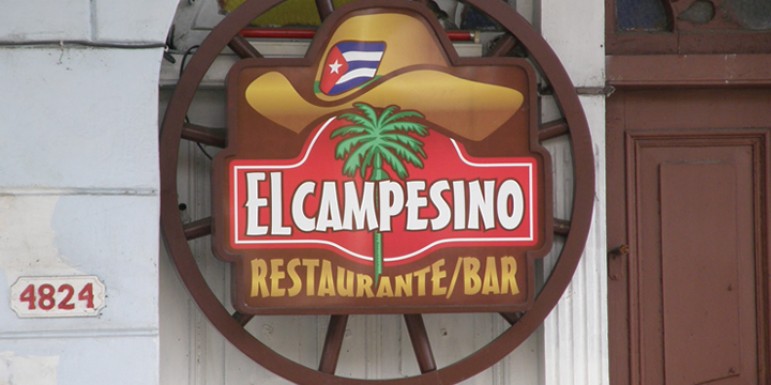
Returning to Cuba with hands full
CIENFUEGOS — While many Cubans still base their life hopes on permanent emigration, a growing number of compatriots are returning to their homeland.
Some, not few, do so to invest their small capital in private enterprises, in the context of the “actualization” of the economic model that the Cuban government is carrying out.
Two thousand is the latest figure of Cuban emigrants who repatriated themselves, a possibility that the immigration reform law of 2012 took into consideration.
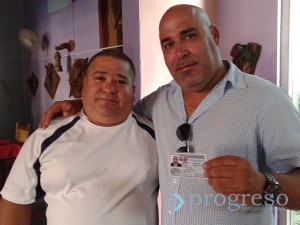
Idalberto Ramírez, owner of the restaurant El Campesino in the city of Cienfuegos, began his life as an emigrant in 2005 in the United States, where he drove parcel delivery trucks. Unsatisfied with his reality, he tried his luck at being a restaurateur in Mexico, but didn’t find what he was looking for.
Ramírez shows his new identity card to a reporter.
“I had always wanted to own a restaurant and that was very difficult to achieve as an emigrant, a Latino, without anyone offering me the capital necessary to start something like that abroad,” he says. “I left with the intention of trying my luck and, because the results were not good, I returned to my homeland and my family.”
The savings he accumulated in the U.S. and Mexico were not sufficient to start a business there, but apparently they were enough for Cuba. On 2010, Ramírez obtained his license as a “cuentapropista” [self-employed entrepreneur] and three years later started “collecting capital.”
“Some called me crazy but some of those who criticized me allow today that I was right. I know several people who are tired of working so hard and so far [from Cuba] and are thinking about returning or have already returned,” says the independent restaurateur, as he welcomes to his establishment another restaurant owner who also chose to repatriate himself.
Return and contribute
The transformations in Cuba’s society open a space so that the savings amassed by the emigrants return to the country and go into very diverse projects, including community and social benefit.
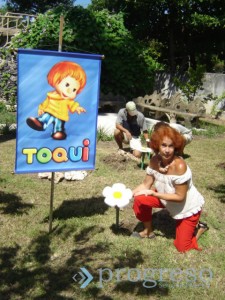
Such is the story of Ana María Salas, a restless artist who, while living in Ecuador, created the children’s character — and doll — named Toqui, a figure that remains in the childhood memories of many Cubans and Latin Americans who grew up in the 1980s and ’90s.
Salas makes it clear that she never left Cuba, because every time she had enough money to buy a plane ticket, she returned. The fact is that, for the past three decades, the artist has spent in Ecuador much of her professional and business life.
“Because art never was enough to make a living, I set up a restaurant, a bar and a hotel in Quito,” she says. Thanks to the income from La Bodeguita de Cuba, the Varadero bar, and the Vieja Cuba Hotel (the venue for her band, El Ciclón del Caribe), she has been able to rebuild a theater she calls La Casona de Toqui.
Enthusiastically, she tours that property, which covers an area hundreds of square yards in size, and points to the advances in the reconstruction of the main building, a beautiful wooden structure.
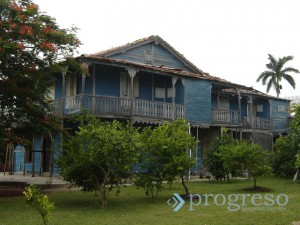
Ten years ago, when Salas started the project — a combination greenhouse and artistic stage — many looked at her with skepticism. They had little influence on her. One should not live without a challenging project, she says.
“I have to return to the earth what the earth gave to me,” she says, thanking the Cuban political system for the opportunities for education it provided in her youth.
The Casona de Toqui is not just a charity project. “My idea is to produce television programs here, beginning with four cartoon and puppet series that I have already written,” she says. “I’m looking ahead to an international market that I know and can be profitable.”
The theater will present chamber music concerts and little-theater shows. “And if all those who come hear to be creative want to plant lettuce and boniatos, well, they can eat them, too,” Salas adds.
Clearing the road that leads home
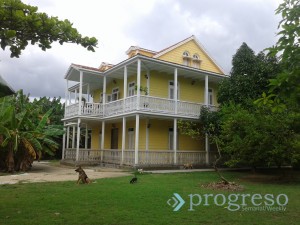
The normalization of relations between the Cuban government and the diaspora is one of the priority in the agenda of reforms that began in 2008.
The 2012 immigration reform introduced new dynamics but remains open to expansion, formulas that will allow the State to coexist without prejudice with the émigrés and to regulate in Cuba what is a common practice worldwide — the so-called “circular emigration.”
Many, inside and outside Cuba, would like to see greater participation in the national economy on the part of the émigrés, a situation that the newly passed Law on Foreign Investment does not forbid, even if the official discourse only cracks the door open.
In most of these repatriations, the return is accompanied by spiritual satisfaction for the émigré and prosperity for the family and the social environment where the returnee settles. By itself, the combination favors and promotes.
Progreso Semanal/ Weekly authorizes the total or partial reproduction of the articles by our journalists, so long as source and author are identified.


